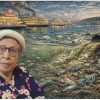Goa is abuzz with excitement as vintage bike and car owners, users, collectors and fans are decking […]

My Smart Phone Made Me Stupid!
Cover Story, Digital India October 4, 2016People have been telling me that the world has changed. The physical world where clerks in government offices sat with files for days on end has given way to a digital world in which there is limited scope for delaying your application – for a ration card or a change in the details of a passport.
The clerk – the dealing hand – cannot demand money from you to move a file from one table to another because “the file could not be found”. When I visited the mamlatdar’s office a decade ago, the room and corridors were heaped sky high with files. There was no place for even the employees to sit, leave alone the visitor. Now the files have vanished as all the data is digitalised, along with the speed of transfer of money to move them from table to table. Almost, because even computers can be sabotaged.
I realised the sea change when I had to renew my passport recently. Passports are issued for 10 years and this new revolution has now reached Goa’s passport office. In the bad old days you had to stand in a queue for the form, which required a great deal of attention to fill. After this, you have to wait in another queue to submit it.
The documents to be submitted along with it were a closely guarded secret. The clerk would tell you that you had not provided proof of your residence. If you argued based on your submission of a ration card, they would ask you why you had not brought an electricity bill. When you went back with the electricity bill, they would tell you that you have not submitted proof of your birth. Even though you may have submitted your SSC certificate – acceptable as proof – they would insist on your birth certificate.
All these were ways of extorting a bribe. The only way of getting a passport without visiting the office a dozen times and paying a fortune in bribes was to entrust the job to a travel agent or a tout. There would always be agents hanging around every government office who would take care of things if you were willing pay their dalali fees. They had a setting with the officials in the office – they shared the bribe with the officials.
The transformation of the passport office into a digital organisation has greatly speeded up the issue of passports. The scope for corruption has dropped as there are no physical forms. You cannot send your form through a travel agent or a dalal. You don’t even have to go to the office to apply or renew your passport thanks to online forms. If you make a mistake in the form, the computer in the passport office will not accept it until it’s correct. You can then print out the receipt generated by the passport office.
You also do not have to queue to pay the fees to the cashier thanks to online payments.
Once you have received an acknowledgement, you get an appointment with the passport officer. The documents that you need to furnish are listed on the Passport Seva Kendra website. At your appointment, the passport officer checks whether the photocopies of these match the originals. The passport officer or a senior official ensures that the name on your various documents such as your birth certificate, school leaving certificate, voter ID and Adhaar card is the same. If you are married, you are required to submit a marriage certificate showing your name after marriage.
Once the passport officer is satisfied that all the documents are in order you are sent to a counter where your photograph, finger and thumb prints are taken. In the bad old days, you had to take six photographs with you. These had to be special passport-sized photographs of a specific size against a white background. Only photo studios knew the requirements of the passport office, and supply you with acceptable prints.
The first time I was not aware of the specific requirement and got my office photographer to take a picture and give me prints. They were not against a white background and were rejected. Now, with photographs taken in the passport office itself, nobody can steal your passport and change the photograph because of the additional security features. The passport also contains a hologram and a bar code, as well as an impression of your fingers and your thumbs. So even if the photograph is substituted, the digital reader at the airport security counter will not accept if the finger prints do not match those embedded in the passport.
The next step is receiving a token, which unlike the cardboard or metal ones of old is actually a piece of paper. The numbers show up on a display screen directing you to go to a specific counter, where your documents will be checked again. In one case, lady’s application was held back as the name in her Adhaar card differed from the one in her voter ID by one alphabet.
If all the documents are in order, you are directed to the final counter by the display board. Here, a final check is conducted on all the procedures that have been followed. Once through, you are given an acknowledgement and directed to the exit, where a receipt informs you that your passport has been granted subject to police verification.
The whole procedure takes less than two hours if all your documents are in order. If there is a delay, it will be because of the police because unlike the passport office, the police department is not digitised. If you do not need police verification, your passport is ready within 48 hours.
You can only receive your passport via speed post which ensures that the proof you provided of your residence is correct. The postman also insists on identity proof before it handing over. The issue of passports and their renewal has become easy, fast and almost corruption free.
The only problem is having to rely on someone with a computer and an internet connection if you are digitally challenged like me. This means that those below the poverty line and senior citizens like me who are digitally disabled are at the mercy of agents or younger people who are digital ustads.
It is true that the digital revolution has reduced corruption and improved efficiency. In the bad old days if you wanted to make changes in the ration card because you got married or wanted to include your children on the card, you had to run from pillar to post.
A colleague recently said that her family’s new ration card had replaced her father with her over centenarian grandmother as the head of the family, so I insisted on preparing a detailed application for her. To her and my pleasant surprise, she did not need it. The clerk simply asked her to produce the original card, and the change was made immediately.
This was possible because all the Civil Supplies Department records which issues ration cards are computerised and the clerk cannot make the excuse that the file is lost or not available. In accordance with the new policy, the clerk insisted that her mother be shown as the head of the family to protect women as they are often victims of greedy husbands and in-laws.
In the bad old days, if you were a retired government servant eligible for pension, you would have to wait for the cheque to be delivered by post. If you were eligible for any welfare schemes, such as the National Rural Employment Guarantee scheme, you were dependent on an agent for these daily wages. If in Goa you had been accepted for the Laadli Laxmi or Grihadhaar scheme, there is no risk that your money will be taken away by your husband, in-laws or your parents, because the funds are transferred directly to your bank account.
The greatest reform introduced by the new Bharatiya Janata Party government headed by Narendra Modi is the Jan Dan Yojana scheme under which anyone can open a bank account with zero balance. This ensures that even the poorest of the poor can get government benefits directly in their accounts without any siphoning. This prevents corruption and ensures that beneficiaries receive money without harassment or having to pay bribes.
The digitisation of subsidies for gas cylinders paid directly to the bank account has helped to eliminate the number of people who have multiple gas connections. Similarly in the run up to any election, if you are computer literate, you can check the electoral roles on the election commission website to ensure that your name has been not removed from the voting list. You do not even have to remember your voter ID number. All you have to do is to enter your name after identifying your constituency and you can confirm that you still have the right to vote.
The flip side is that the digital revolution has made life miserable for people who are not digitally empowered. It is true that more Indians have mobile phones than toilets. But having a mobile phone is not enough to empower you digitally. You still have to buy an internet pack and be connected if you want to enjoy the benefits of digital revolution. Equally handicapped are senior citizens like me who are computer and mobile illiterate.
Like everyone else I also got my first mobile phone about 15 years ago. With difficulty I learnt to send messages even though I did not know to type. More recently someone helped me set up What’s App. When I started telling him about my health problems, he said he didn’t want to hear about my life, but rather why I was not on what’s app. So I bought a smart phone and got somebody to download the application on which I can send free messages. My so-called smartphone is now telling me that the version of What’s App I have is outdated and needs an update.
This I have been trying without success. So I cannot send or receive messages on What’s App anymore. Everyone has switched to this app because it is free while normal text messages are paid.
But there is a silver lining in the cloud. People might stop using What’s App soon because personal information – which has so far been confidential – can now be shared with Facebook, which has bought over What’s App.
The worst part of the digital world is the feeling that I am dead. You are no longer alive unless you are on Facebook, Twitter and What’s App. In the bad old days everyone knew me because I was the editor of Herald and later the Goan Observer. Till even a decade ago, people relied to newspapers and magazines for information.
Now, most people under 30 have stopped reading newspapers and magazines, and if they do, it is on their mobile phones. They watch television channels on their phones. For the digital world, what is trending on Facebook is more real than what is happening in the world. I suddenly realise that nobody knows me because I am not on Facebook. In fact, a gentleman who wanted me to write his biography thought I was dead and it took him six months to find out I was alive.
In the old days when you wanted to buy a fridge, washing machine or groceries, you went to a shop, a brick-and-mortar variety with real goods and human sales personnel. Now, everyone shops online. No parking problem. No carrying large bags. No hiring a tempo to take your electrical equipment or furniture home. No need to rush to the grocery shop if you have run out of rice or wheat or sugar or cooking oil. You can call the shopkeeper or order online and have it delivered home.
In Bangalore I understand that people have stopped going to restaurants because a mobile app allows you to order food at home. Nobody goes to a laundry to get their clothes washed or dry cleaned. There is another app where the launderer will come to your house. Finally, this will lead to a situation where you will not meet your neighbours or friends in real life. You will only see them and party with them online.
Even the way you do business has changed. The biggest taxi company in the world does not own a single taxi. It makes billions by getting people to use its app to summon a taxi driver with whom it had tied up. Similarly the biggest hotel company does not own a single hotel. It simply links the guest with the hotel in any part of the world. In the near future you may not have to leave to work. You can work from Goa for a company based in California.
But only if you are computer literate. We may not have reached the stage where we can teleport like in space fiction films. But we can transport our voices and our images to any part of the world digitally through our smart phones.














